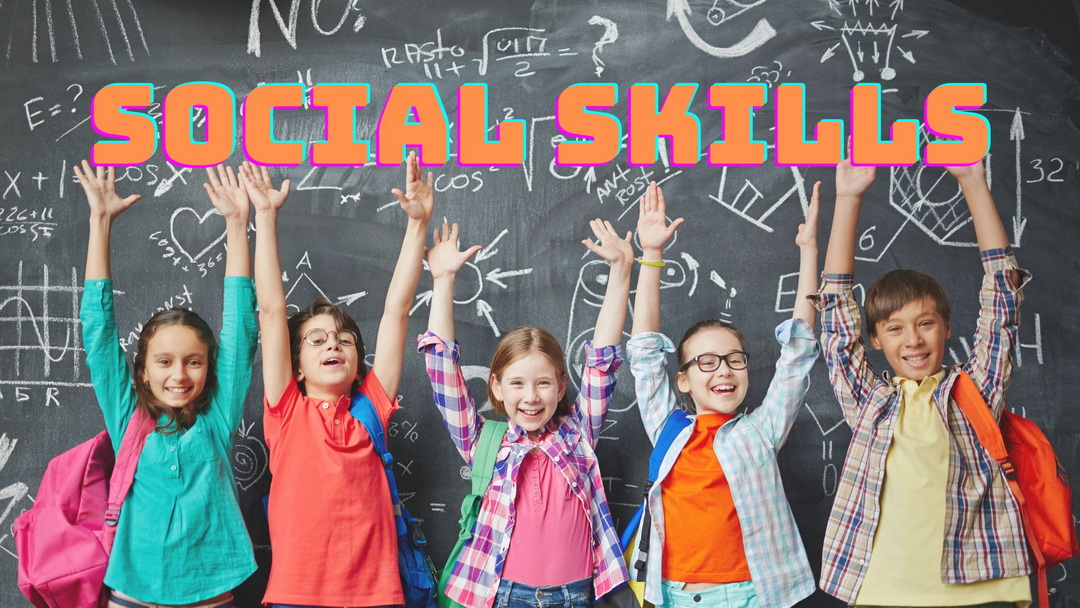
Social skills are essential for personal and professional success. Strong social skills enable children to communicate effectively, make friends, and handle conflicts. In this blog post, we will explore the top social skills that can be developed and improved, and provide actionable tips for parents to help their children become better at socializing.
What are social skills?
Social skills refer to a broad range of abilities that allow individuals to interact effectively with others in various social situations. These skills include verbal and non-verbal communication, active listening, empathy, conflict resolution, social etiquette, and more.
Social skills enable individuals to build and maintain healthy relationships, handle conflicts, and navigate complex social situations with ease. They are crucial for personal and professional success, and are essential for children’s development and growth.
Developing and improving social skills is a lifelong process that requires practice, guidance, and a willingness to learn and adapt. At Maadi Narmer School, we believe that strong social skills are key to our students’ success, and we are committed to helping them develop these skills throughout their academic journey.
Types of Social Cues for Children
Social cues are signals that we send and receive during social interactions that provide information about how to behave or respond. Children who are adept at reading and responding to social cues are better equipped to handle social situations and build positive relationships.
Here are some common types of social cues that parents can help children learn to recognize and respond to:
1- Facial Expressions:
Children can learn to recognize basic emotions, such as happiness, sadness, anger, and fear, by observing others’ facial expressions. They can also learn to use their own facial expressions to convey their emotions and intentions.
2- Body Language:
Body language includes gestures, posture, and movement. Children can learn to interpret body language cues to understand how others are feeling or what they are trying to communicate.
3- Tone of Voice:
Children can learn to recognize different tones of voice, such as friendly, sarcastic, or angry, to understand the emotional content of a message.
4- Eye Contact:
Eye contact is an important non-verbal cue that signals attention and interest. Children can learn to use eye contact to show that they are listening and engaged in a conversation.
5- Personal Space:
Personal space refers to the physical distance that people maintain between themselves and others. Children can learn to recognize and respect others’ personal space, which helps to build positive relationships.
By helping children learn to recognize and respond to social cues, parents can help them develop stronger social skills and build positive relationships with others.
At Maadi Narmer School, we recognize the importance of social cues in children’s development, and we provide opportunities for our students to practice and improve their social skills in a supportive and nurturing environment.
Top Social Skills to Develop and Improve
- Verbal Communication: Encourage your child to speak clearly and confidently, using proper grammar and vocabulary. Teach them to express their thoughts and ideas in a logical and organized way.
- Active Listening: Teach your child to pay attention to what others are saying, ask clarifying questions, and summarize what they heard. This shows respect for others’ opinions and helps avoid misunderstandings.
- Interpersonal Skills: Help your child develop empathy and understanding of others’ perspectives. Teach them how to build and maintain healthy relationships and resolve conflicts peacefully.
- Body Language: Show your child how to use appropriate gestures and facial expressions to convey their message. Teach them to read other people’s body language and respond accordingly.
- Tone of Voice: Explain how the tone of voice can affect how the message is received. Help your child practice using a friendly, respectful, and confident tone.
- Conflict Resolution: Teach your child how to express their feelings and needs assertively, listen to others’ viewpoints, and find a win-win solution. This promotes mutual respect and cooperation.
- Customer Service: Role-play with your child to practice greeting, assisting, and thanking others in a courteous and professional manner. This develops good manners and etiquette.
- Social Etiquette: Teach your child proper manners, such as saying please and thank you, holding doors for others, and respecting personal space.
The Best Activities to Master Social Skills at School
At Maadi Narmer School, we believe that social skills are essential for students’ success, and we provide a variety of activities and opportunities for our students to develop and master these skills. Here are some of the best activities that can help students improve their social skills:
Group Projects:
Group projects provide opportunities for students to collaborate, communicate, and problem-solve with others. By working in teams, students learn to share ideas, listen actively, and work towards a common goal.
Role-playing:
Role-playing activities allow students to practice social skills in a safe and supportive environment. By taking on different roles and scenarios, students can develop their communication, empathy, and conflict resolution skills.
Team-building Activities:
Team-building activities, such as trust exercises and problem-solving challenges, can help students build trust, respect, and cooperation with their peers. These activities promote positive relationships and improve social skills.
Service Projects:
Service projects provide opportunities for students to engage with their community and develop empathy and compassion for others. By participating in service projects, students learn to communicate effectively, work collaboratively, and develop a sense of responsibility towards others.
Debates:
Debates allow students to practice their verbal communication and critical thinking skills. By listening actively, formulating arguments, and respectfully debating with their peers, students can develop their persuasive and communication skills.
By engaging in these activities, students can improve their social skills and develop important interpersonal skills that will benefit them in all aspects of their lives. We are committed to providing our students with a well-rounded education that includes opportunities to develop their social skills and become responsible, empathetic, and effective communicators.
